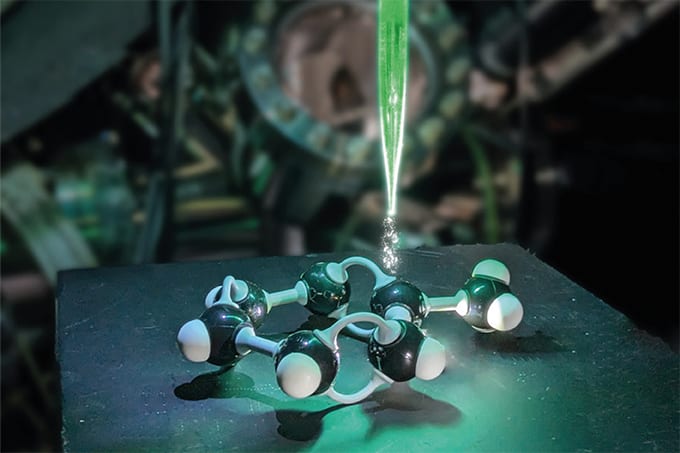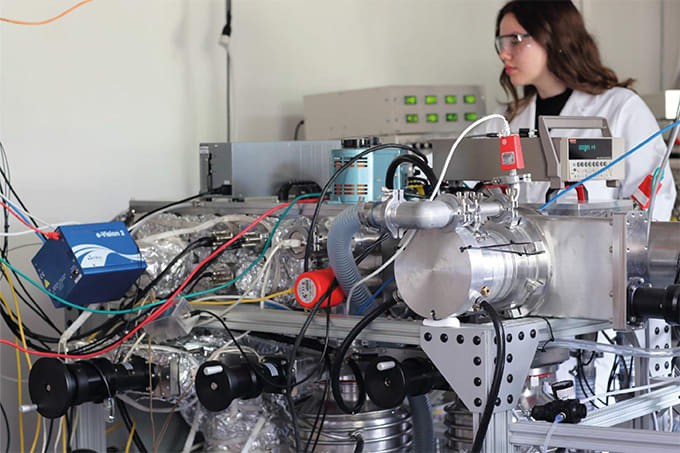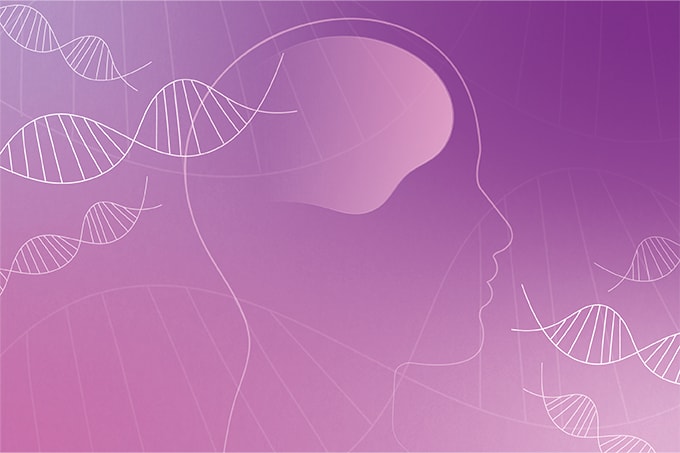Academics, unlike other professors, have to deal with two issues: lecturing in the amphitheater and conducting research to cope with progress in the scientific arena. Teaching at a university is completely different from teaching in high school – professors have to communicate primary knowledge rather than reproduce material from books.
Fundamental chemistry is of course the foundation on which a syllabus is built, but new findings are the bricks for the continuation of building science. Even results of low impact or importance, or even negative results can be used for this building process. And who is going to continue this construction in the field of analytical chemistry? The answer is the new generation of analytical chemists. Students in their early twenties are the ones who have the big task of first learning and then subsequently promoting research. But how can young scientists be challenged and inspired?
The new generation is fortunate as they live in a time when everything is very fast and easily accessible. They are all more familiar in using technology than their tutors are. Highly sophisticated instruments are available, which make life simple but sometimes boring. Many questions arise. What is the role of the analytical chemist? Is it solely the collection of data? What about the interpretation of results? Is it even still attractive? Is the collection of raw data equally as fascinating as the formation of cobalt phosphate in an experimental tube? How impressed my students are when I show them precipitation of the colored sediments. How amazed they are to see those sediments disappear as the pH value changes. This is the magic of chemistry.
But is there still magic behind the numbers obtained during measurements? Yes – when considered in the right way; for example, when plotting numbers and seeing how well they fit to the line or curve, or using those numbers to support an initially stated hypothesis. Undoubtedly, students must be open to receiving the signals that instructors give them whilst using skill to create magic of their own. We all have to take into account that “the mind is not a vessel that needs filling, but wood that needs igniting” – a quote of Greek Philosopher Plutarch. In other words, we should create an impulse for them to think independently. But, as academics, are we instructors or researchers? Which task must receive priority and how easy is it to find the right balance between the two? And, given the above, how can we spark excitement in young analytical chemists?
But how can we reach this goal in a period of global financial crisis? How can we meet the challenge of making big progress with innovative and pioneering research despite shortages? Maybe from this point of view, magic is more necessary than ever. And let’s not forget that the new generation of analytical chemists will confront the same issues. Students should feel that their dreams can come true, even though they are pretty much aware that further studies may not be financially viable or that they may not find a job that matches their qualifications. We – the academics – must help the new generation envision a brilliant future – putting aside all shortcomings of the reality. The point is that future analytical chemists, like all students, need some time dedicated to their concerns. Professors must be their mentors – not inaccessible legends. We must get close to them and feel the pulse of the present. In that way, we can use the wisdom of the past to build a better future. Remember what Confucius said: “If your plan is for one year – plant rice; if your plan is for ten years – plant trees; if your plan is for a hundred years – educate children.”




